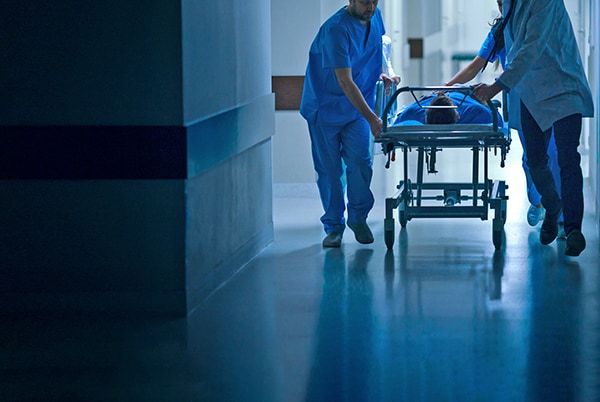ESESFM is committed to respecting the privacy of its users. The User, by sending information through the ESESFM website, declares and guarantees that he has the powers and capacity to do so.
General Data Protection Regulation (GDPR)
The General Data Protection Regulation is in force, which establishes rules regarding the protection and processing of personal data.
1. Identification of the Data Controller
University Teaching Cooperative founding entity of ESESFM.
Rua de Santa Marta 47 2º 1150-293 Lisbon
2. What data we collect and the treatment we give them
direct collection
It is not necessary to provide any personal data to use the ESESFM website as a visitor. Users' personal data are only collected when any of the available features essential for ESESFM to provide information or allow access to Newsletters, Events, etc. is subscribed.
The data we collect for these purposes are as follows:
Indirect data collection
ESESFM, through Google Analytics, collects the following aggregated data: Geographic origin (city, country), language, device type, operating system, browser, operator, age, genre, access date and time referencing data addresses, IP address.
ESESFM will monitor all statistical information regarding the use of the site in an aggregated and anonymous way. The data used for this purpose does not contain personally identifiable data or private information.
The analyzes carried out from this information will be carried out to interpret the patterns of use of the website and improve service levels and user satisfaction. This information may be disclosed to third parties or publicly.
ESESFM also uses cookies on the website in order to improve performance and user experience.
“Cookies” are small text files that are stored on your computer or mobile device through your browser, retaining only generic information related to user preferences; allow access to specific areas of the site and faster and more efficient navigation, eliminating the need to repeatedly enter the same information.
By clicking on the cookies banner or by continuing to browse the ESESFM website, users of the website are accepting the insertion of cookies in the respective devices mentioned above, without prejudice to the control and management available.
Through browsers, any user can accept, refuse or delete cookies, namely by selecting the appropriate settings in the respective browser. At any time, the user can, through it, decide to be notified of the receipt of cookies, as well as block their entry into their system. Removing or blocking cookies on the website may limit access to some areas of the website.
ESESFM may also use web beacons (including conversion pixels) or other technologies for purposes similar to those identified above, including them on its website, in marketing emails or in our Newsletters to determine whether messages have been opened and whether clicks on available links. Web beacons do not place information on users' computers, but they can, in conjunction with cookies, allow the monitoring of website activity. Conversion pixels are small codes located on a web page that are activated when someone visits that page.
3. Purposes and legal basis of the data
ESESFM collects your contact data so that it can provide information or allow access to Newsletters, Articles, Events, etc.
ESESFM may also, if the data subject gives his consent, use the contact data provided for use in Marketing campaigns or to send communications regarding our offer of services or those of our Partners. In these situations, the user is always given the possibility to oppose the sending of subsequent communications for the purposes of direct marketing, sending an email to privacidade@grupoautonoma.pt.
4. How long do we store your data
The data will be kept as long as the Data Subject does not withdraw his consent.
5. Recipients of data
Marketing or the Legal Department are addressed (in case of exercise of rights by the Owners).
6. Disclosure of data
ESESFM does not disclose the personal data collected, unless required by law or by the competent authorities.
7. Data transfers
There are no data transfers to entities in countries that are not covered or in accordance with the GDPR.
8. What measures are in place to protect your data against unauthorized access, alteration or destruction?
ESESFM takes the necessary and legally required precautions to ensure the protection of the information collected from its users through the ESESFM website. These precautions ensure the offline security of that information.
Among others, the following technical and organizational measures are implemented to ensure the security and confidentiality of personal data: physical security (through access control), logical separation of records, access passwords and access levels, firewalls and antivirus programs. Data is kept encrypted.
9. Your rights
All personal data are processed in accordance with the provisions of Regulation EU 2016/679 of the European Parliament and of the Council, with the holders of personal data having the right to access, freely and without restrictions, confirming, rectifying, erasing or blocking the data. that they have provided, being able to exercise it, personally at our facilities or in writing, via email privacidade@grupoautonoma.pt, at any time and free of charge.
The Data Subject has the right to withdraw his consent at any time, and for this purpose, contact us via email. privacidade@grupoautonoma.pt
The Data Subject has the right to file a complaint with the National Data Protection Commission or any other supervisory authority.
10. Contact us
For any question related to the processing of your personal data, you can contact ESESFM by sending an email to privacidade@grupoautonoma.pt.
11. Revisions and changes
ESESFM reserves the right to change the privacy policy at any time.

